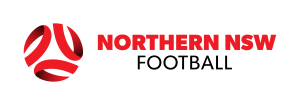Northern NSW Football has thrown its support behind an urgent push for more funding and facilities for community and grassroots sports in NSW.
NNSWF has joined forces with some of the state’s highest profile sporting heroes including dual Olympic medallist, flag-bearer and World Champion basketballer Lauren Jackson, former Australian cricketer and now CEO of Softball NSW Stuart Clark, former Australian cricketer Alex Blackwell, Winter Olympic ice-skater and Beijing flag-bearer Brendan Kerry, co-captain of the NSW Swifts Maddy Proud, former Olympic beach volleyball gold medallist Kerri Pottharst, Macarthur FC defender Isaac Hovar and former wheelchair tennis player Stephan Rochecouste to call on the NSW Government and Opposition to step up the funding and provision of facilities for community sport ahead of the 2023 state election.
Playing Catch Up Report
The Playing Catch Up report by Sport NSW, the peak advocacy body representing the state’s sporting sector, calls on all sides of politics to properly fund NSW sporting organisations, which have not received an increase to their organisational support payments - known as ‘core funding’ – since 2000.
Sport NSW Chair Chris Hall said the report revealed NSW was a laggard compared to other states when it comes to supporting community sport.
“We are calling on all sides of politics to play catch up in funding community sport in NSW,” Mr Hall said.
“In some cases, the payments made to a sport in NSW is close to eight times less than the similar payment made to their Queensland equivalent.
“While there have been some great programs over recent years, core funding for community sport is way behind other states.
“This means that the least funded sports, some of which are Olympic sports, are receiving just $5,000 a year to administer their organisations, run their competitions and comply with important but increasingly onerous governance requirements including matters of integrity, child protection and data compliance.
“Community sport is not for profit. You simply can’t expect sports to have an ever-increasing burden of responsibility and be the glue that keeps our community together, while providing them funding that has stayed the same for 22 years.”
The report also revealed NSW community sports are facing a facilities crisis, with some sports turning away potential participants or curbing their growth because of a lack of places to play.
“Our population in NSW continues to grow, people are returning to sport post the pandemic and sports need facilities to match demand,” Mr Hall said.
“Playing Catch Up highlights the situation in basketball in where 10,000 children are turned away from playing every year because they simply don’t have enough courts.
“Football is crying out for more fields, while water sports are in desperate need of more facilities and non-swimming water sports are fighting for useable waterways and facilities.
“Sport and recreation is crucial to our wellbeing, our mental health and the strength of our community and
we want to make sure the sector can deliver for participants throughout NSW.”
The Playing Catch Up report was compiled after six months of consultation with Sport NSW members which include 80 State Sporting Organisations.
It calls for an $8 million uplift in ‘core funding’ for sports and also recommends continuing and expanding the successful Active Kids Vouchers by making them available for adults and pre-schoolers too.
“We want to acknowledge the success of the Active Kids voucher program as well as the significant investment in infrastructure made by the NSW Government in recent years, but the reality is even though those investments are welcome, there is still more to do to support healthy, active and growing communities across NSW,” Mr Hall said.
“We believe an $8 million increase in funds for community sport could be found from the underspend in Active Kids which is about one dollar per person in NSW. In return we will get a more vibrant sport sector able to foster healthy communities.”
The Playing Catch Up Sport NSW report also calls for the transparent reporting of government data that would reveal where sports facilities are most needed, as well as the establishment of a new Sports Infrastructure unit to spearhead the facilities push.
